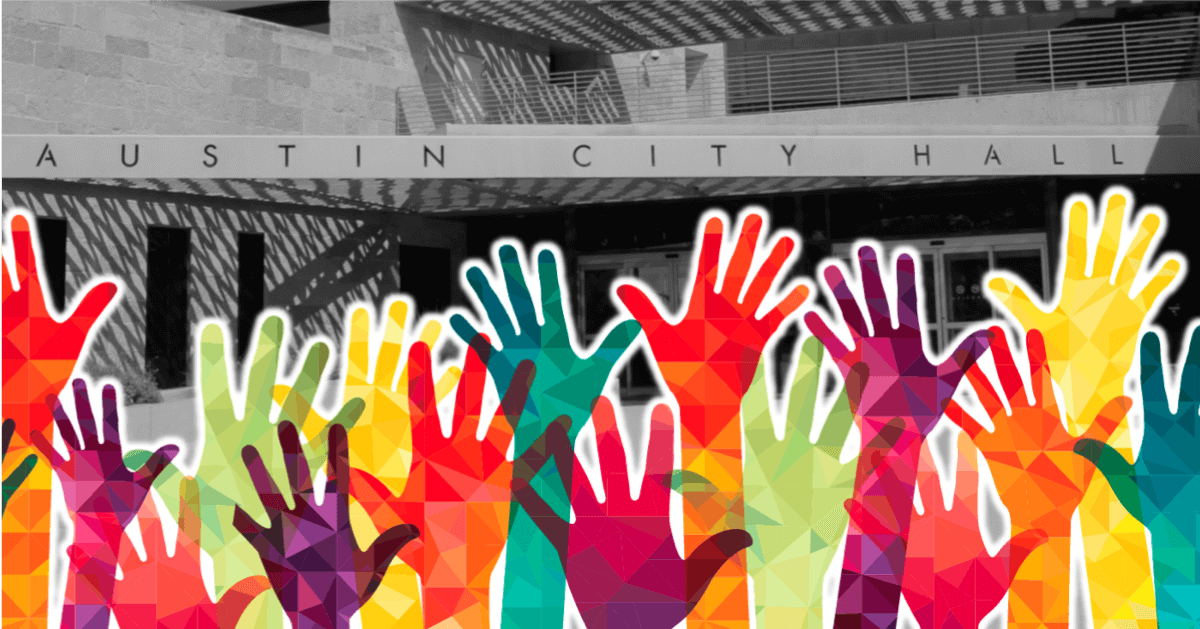
When it comes to the City of Austin’s controversial rezoning plan, Mayor Steve Adler is doing everything in his power to diminish this community’s voice. The 1,366-page plan will rezone every residential property, impact every neighborhood, and affect every person living in Austin—but Adler limited public input to a single hearing this past Saturday, with a two-minute limit for any resident who wished to speak.
The tactic may have backfired.
Austinites from every corner of the community, every socioeconomic background, and every age group began lining up at City Hall early Saturday morning. Homeowners, renters, parents, students, neighborhood activists, and experts in planning and zoning waited hours to take their turns at the microphone.
That plan would allow land developers to add a pair of large residences on any lot that is 5,000 square feet or larger and has a home 30 years or older already on it, effectively abolishing single-family neighborhoods in Austin. In the city’s so-called “transition zones,” it would allow buildings up to 45 feet tall on some lots, with up to 10 dwelling units on each. Up to 60 percent of many of those lots could be covered by concrete or other impervious materials.
Some residents didn’t wait for Saturday’s hearing, publicly confronting the mayor at other events out of fear that the plan will destroy the city’s neighborhoods, exacerbate flooding, accelerate displacement, hurt our tree canopy, and more.
Check this map to see how the City of Austin’s rezoning plan impacts your property, then file an official protest to help protect it. Once you protest the rezoning of property, Community Not Commodity’s legal team believes the City of Austin will be unable to rezone it without a vote of three-fourths of the city council (9 of 11 votes), rather than a simple majority.
Protests may not be filed after the city council takes its final vote on the rezoning plan, which will likely occur early next year. Please act fast!
Community Not Commodity wants to offer a big THANK YOU to the Austinites who attended Saturday’s hearing, and to those who have reached out to the city council via phone and email. Together we can build an Austin for everyone!